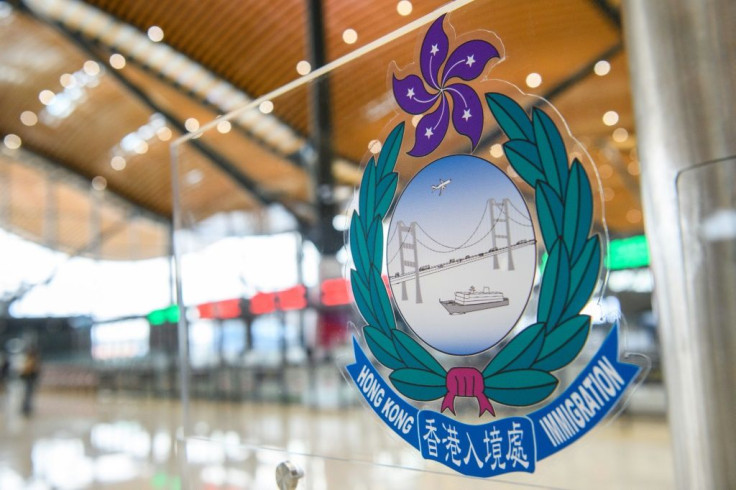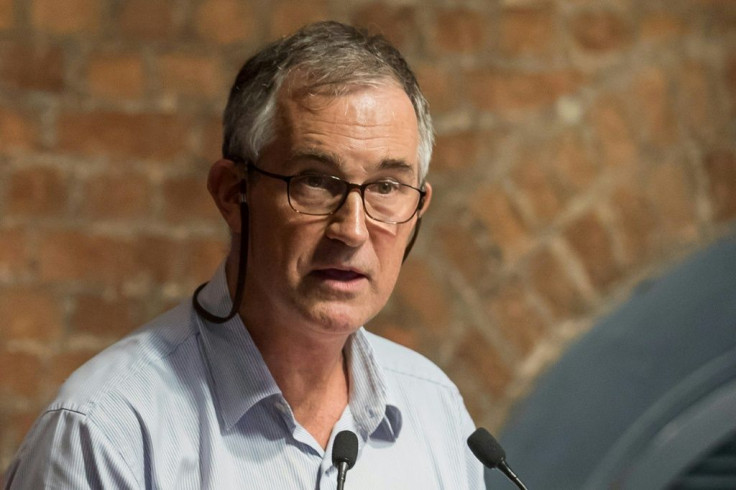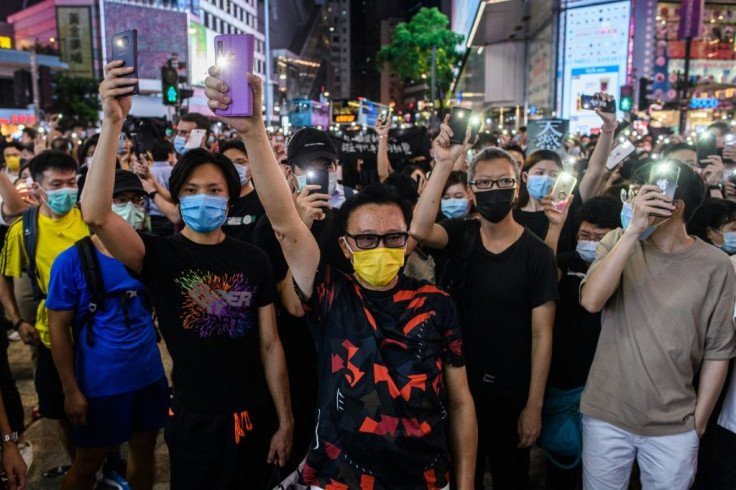Hong Kong News Site Says Irish Journalist Denied Visa
A Hong Kong news website on Thursday said authorities had denied a visa for an Irish journalist in what press groups described as an alarming acceleration of a government clampdown on the media.
The semi-autonomous financial hub has long been a major global media centre but its reputation as a press haven is slipping as authoritarian China exerts greater control over the restless city.
Journalists have been caught in spiralling US-China tensions, with both countries expelling reporters or placing limits on their numbers -- including Hong Kong rejecting a visa for a veteran Australian reporter at the New York Times in July.
But the latest case impacts a local, non-American news outlet.

Hong Kong Free Press (HKFP) said the immigration department had denied a visa for journalist Aaron McNicholas "without any official reason" after nearly six months of waiting.
McNicholas previously worked at Bloomberg -- which has a regional headquarters in Hong Kong -- and Storyful without visa issues.
"We are a local news outlet and our prospective editor was a journalist originally from Ireland, so this is not another tit-for-tat measure under the US-China trade dispute," HKFP editor-in-chief Tom Grundy said in a statement.
"It appears we have been targeted under the climate of the new security law and because of our impartial and fact-based coverage."

The immigration department did not respond to media enquiries about the rejection and historically refuses to comment on why visas are denied.
Beijing imposed a sweeping new security law on Hong Kong in late June in response to months of huge and often violent pro-democracy protests last year.

Earlier this month, police used the new law to arrest Jimmy Lai, the owner of Hong Kong's most popular tabloid Apple Daily, and raid its newsrooms in a "foreign collusion" investigation.
One of the provisions in the new law is to increase supervision of foreign media.
On the Chinese mainland, foreign reporters are routinely denied visas, harassed by authorities or forced to leave the country.
Hong Kong has been a regional nerve centre for international media for decades thanks to its easy business environment and key civil liberties that Beijing pledged to protect until 2047 under the handover deal with Britain.
The New York Times, CNN, Bloomberg, the Wall Street Journal, CNBC, the Financial Times and AFP are among numerous international media outlets with a major presence in the city.
In July, the New York Times said it was moving a third of its Hong Kong-based personnel to South Korea because of concerns over the new security law and sudden difficulties obtaining visas for multiple staff.
The city's foreign press club said multiple news outlets were also facing "highly unusual" visa delays with authorities yet to offer any explanation.
Even before the law came in, Hong Kong's press freedom ranking was slipping. In 2009, Reporters Without Borders (RSF) placed it 48th in the world. This year it was 80th.
Cedric Alviani, RSF's East Asia bureau head, said the visa rejection for HKFP was "another sign of the recent acceleration of press freedom's decline" since the security law was imposed.
Last week, senior Hong Kong official Matthew Cheung wrote to the Financial Times and the Wall Street Journal to refute recent editorials lamenting the decline of press freedoms in the city.
"Hong Kong has always remained committed to ensuring press freedom," he wrote.
In 2018, the Financial Times was denied a visa renewal for a senior editor after he held a talk at the city's press club with an independence advocate.
The government has never said why that visa was denied.
© Copyright AFP 2024. All rights reserved.




















